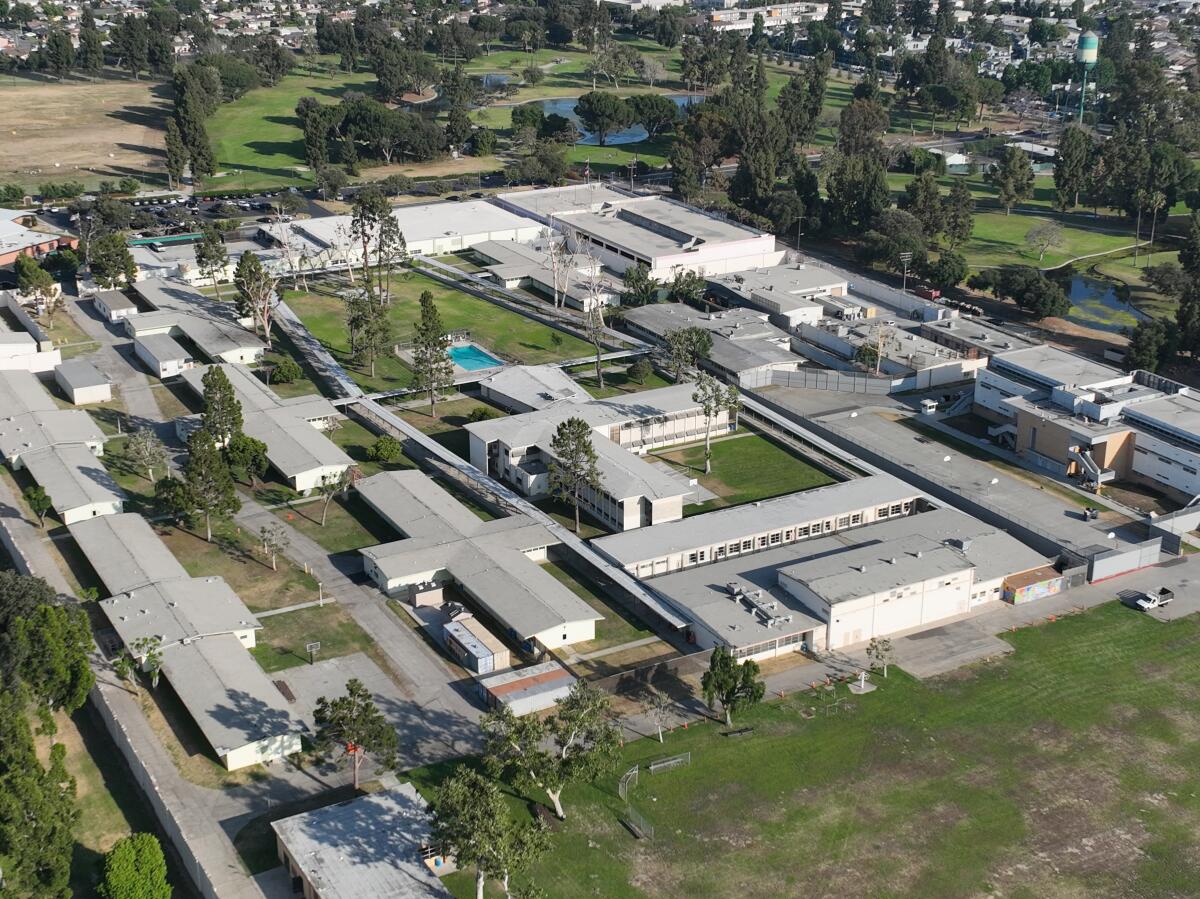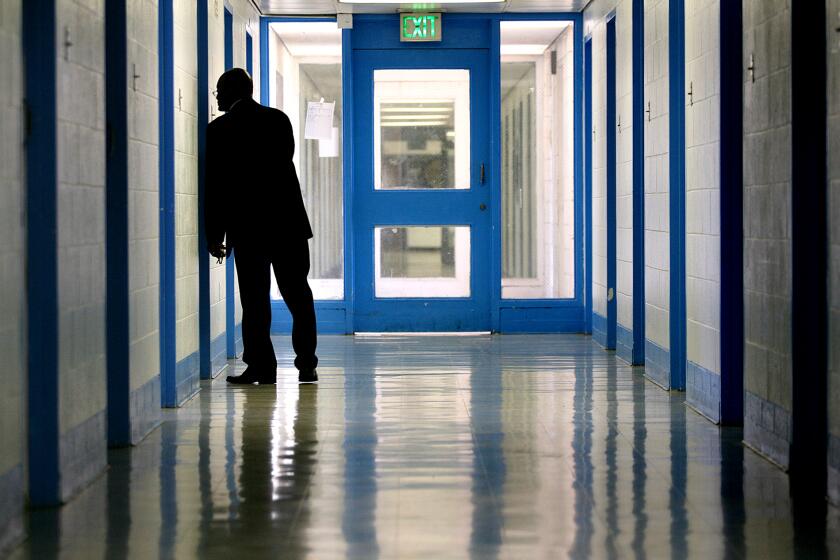In nick of time, L.A. County adds staff to keep juvenile halls open. Many are skeptical it’ll last

- Share via
Los Angeles County once again narrowly averted a shutdown of its two juvenile halls, bolstering staffing enough to temporarily appease state regulators.
In February, the Board of State and Community Corrections gave the county a deadline: They had two months to improve dire conditions inside the halls or get everyone out.
On Thursday, the state board said the eleventh-hour improvements to Los Padrinos in Downey and Barry J. Nidorf in Sylmar had done the job. They voted 6 to 3 to let the county’s Probation Department keep its two troubled halls open, primarily thanks to beefed-up staffing levels. One member abstained and two recused themselves.
This means the roughly 350 youths in county custody will stay put — unless the staffing starts to slip again.
“Your mission now is sustainability,” said Linda Penner, who chairs the state board.
State regulators had given L.A. County multiple opportunities to bring the juvenile facilities in Sylmar and Boyle Heights into compliance.
Over the last few years, L.A. County has repeatedly come under fire from the board, which oversees correctional facilities statewide, for incarcerating young people in dangerous facilities. Last year, the oversight board ordered all youths out of Central Juvenile Hall in Boyle Heights and most out of Nidorf after the county repeatedly failed to correct problems inside. Roughly 300 youths were transferred to Los Padrinos, which quickly became beset by similar issues.
The problems at each facility mostly stem from meager staffing. Many employees have said the halls are too dangerous to work in. There often weren’t enough employees on hand to take youths to their programs, classes or, when necessary, to the bathroom. Deputies have reported an increase in violent incidents, traumatizing both youths and staff.
At Thursday’s meeting in Sacramento, inspectors painted a rosier picture of conditions inside the halls, noting staffing had increased at both places. The agency pulled probation staff who usually work in the field and placed them in the halls, helping them meet minimum staffing requirements.
Probation Chief Guillermo Viera Rosa, who used to be a member of the state board, said the agency had made “great strides” recently in staffing the facilities and cheered the decision to let them keep operating.
“While today’s ... decision marks a milestone in that effort, we note the ongoing concerns and acknowledge there’s still much more to be done,” he said.
About 285 young people are confined at Los Padrinos, according to numbers provided by the probation oversight commission. About 67 are confined at Barry J. Nidorf, all of whom have been accused of more serious crimes.
At Thursday’s meeting, many advocates — as well as some on the state board — appeared deeply skeptical the improvements would last more than a few weeks.
“The problems in our juvenile halls need real fixes, not temporary band-aids,” said Sean Garcia-Leys, head of the Peace and Justice Law Center and member of the probation oversight commission. “No one believes the department can keep pulling hundreds of probation officers away from their other jobs to work in the facilities.”
One board member called the staffing issue “the elephant in the room.”
Sources told The Times the probation officers are accused of standing by and allowing a group of youths to batter another teen in custody.
“Most people would reasonably say there’s a band-aid approach employed to the staffing problem,” said board member Brian Richart, the chief probation officer for El Dorado County.
Dozens of advocates urged board members to close the halls, detailing a litany of scandals in the last year, including eight probation officers placed on leave after allegedly watching a youth get beaten and the fatal overdose of an 18-year-old. Protesters temporarily shut down the L.A. County Board of Supervisors meeting earlier this week protesting poor conditions inside the halls.
“Be honest with yourselves,” Axel Pecero, of the advocacy group California Youth Connection, said at Thursday’s meeting. “If your child was arrested tomorrow, would you feel comfortable with them spending even one night in these facilities?”
Allison Ganter, deputy director with the state board, said she found in her recent inspections that safety checks were up and room confinement was down. Youths appeared to be getting more programming and school time. Deputies were missing work less than usual.
But she, too, seemed skeptical the agency could maintain the level of staffing that spurred the fixes.
“Given past experience, I would say I don’t have a lot of confidence,” she said. But, “given recent numbers, I have hope.”
More to Read
Sign up for Essential California
The most important California stories and recommendations in your inbox every morning.
You may occasionally receive promotional content from the Los Angeles Times.













